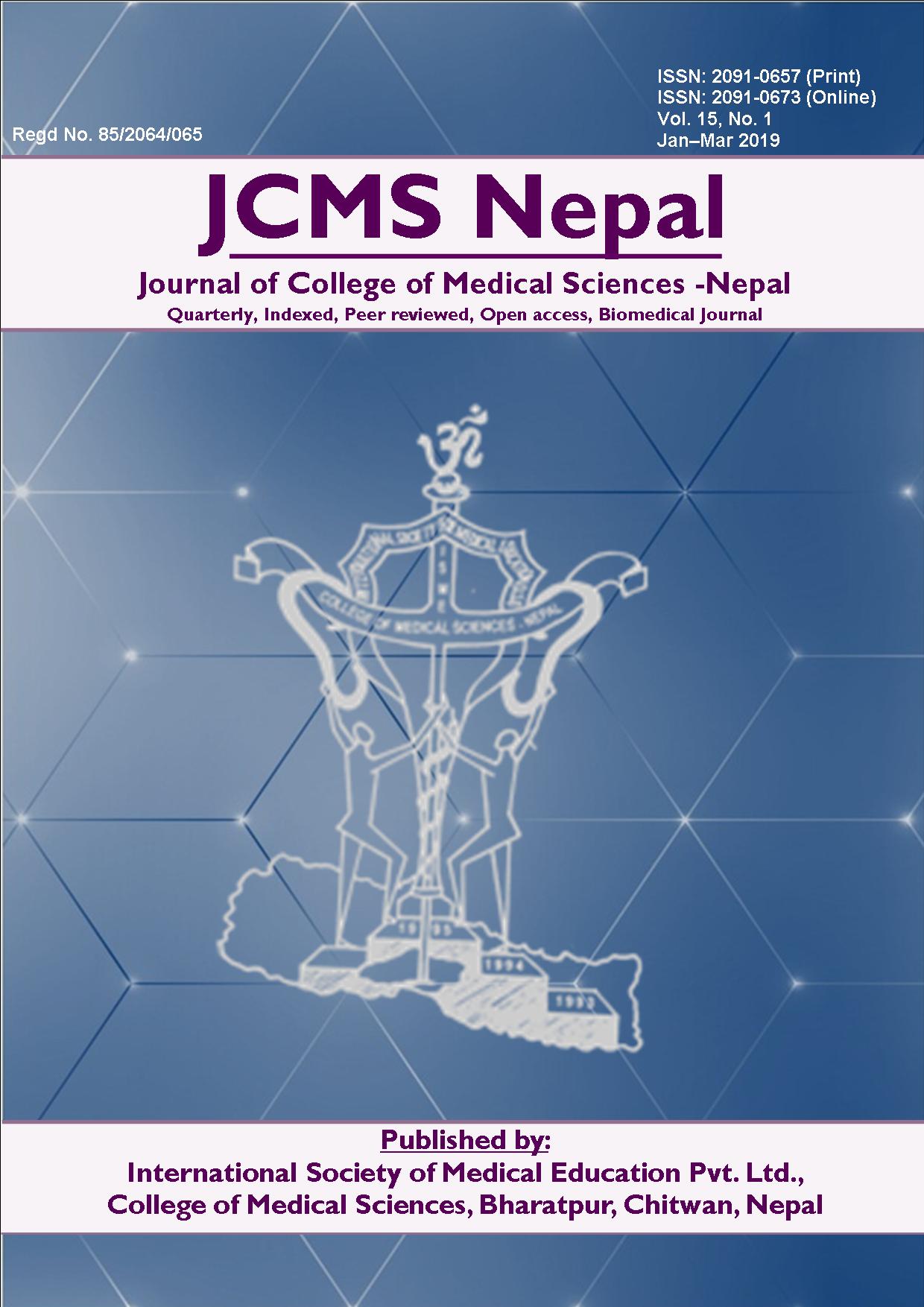Self-Medication Practices in Surrounding Communities of Birat Medical College and Teaching Hospital of Eastern Nepal
DOI:
https://doi.org/10.3126/jcmsn.v15i1.23021Keywords:
AMR, Hospitals, Nepal, self-medicationAbstract
Background: Self-medication is the use of drugs to treat self-diagnosed disorders/symptoms, or the intermittent/continued use of a prescribed drug for chronic/recurrent disease/symptoms (WHO). It is the cause for antibiotic resistance, inappropriate treatment, financial burden and many deaths. WHO listed self-medication as one of the priority research area at the local context. The objective of the study was to find the prevalence and pattern of self-medication in surrounding communities of Birat Medical College and Teaching Hospital.
Methods: A community-based cross-sectional study was conducted at the surrounding communities of Birat Medical College from 1st August 2018 to 15th December 2018. Multistage sampling was used to collect information from 348 household having family members aged 16 years and above. Ethical approval was taken from Institutional Review Committee of Birat Medical College. Pre-tested semi-structured questionnaire was used.
Results: The mean age of the participants was 40.5±15.9 years. Prevalence of self-medication was 44.04%. Majority took self-medication for headache 43.6% followed by common cold 39.1% etc. Majority used allopathic drugs 82.7% followed by traditional healers 9.8%. Common medication were antipyretics 18.8%, antibiotics 16.5%, proton pump inhibitor 7.5%, antihistamines 6.8% etc. The reason behind self-medication were low cost 30.1%, time saving 24.1%, illness too trivial/mild for consultation 18.8%, quick relief 18.1%, high doctor fee 15 %, lack of awareness 13.5 %, familiar with treatment options 12.8%, long waiting line in hospital 12% etc. Out of them 8.3% noticed side effects of self-medication. Out of all 59.5% felt the need of awareness program on rational use of medicines. Age, sex, marital status, ethnicity, religion, education and occupation of participants, education and occupation of head of household, poverty status, family type, house residence type, type of house has no significant association with self-medication. Participants residing in alani/rent households were 1.93 times more likely to self-medicate than those residing in their own and participants having negative attitude were 1.90 times more likely to self-medicate than those who had positive attitude and both were statistically significant.
Conclusions: The burden of self-medication was present and allopathic drugs including antibiotics were common. Adverse drug reactions were reported but participants were unaware about the place to report. Participants had negative attitude towards self-medication which is harmful for their health. As pharmacy was the common source of self-medication, the prescription based medicine dispensary should be advocated.
Downloads
Downloads
Published
How to Cite
Issue
Section
License
This license enables reusers to copy and distribute the material in any medium or format in unadapted form only, for noncommercial purposes only, and only so long as attribution is given to the creator.




